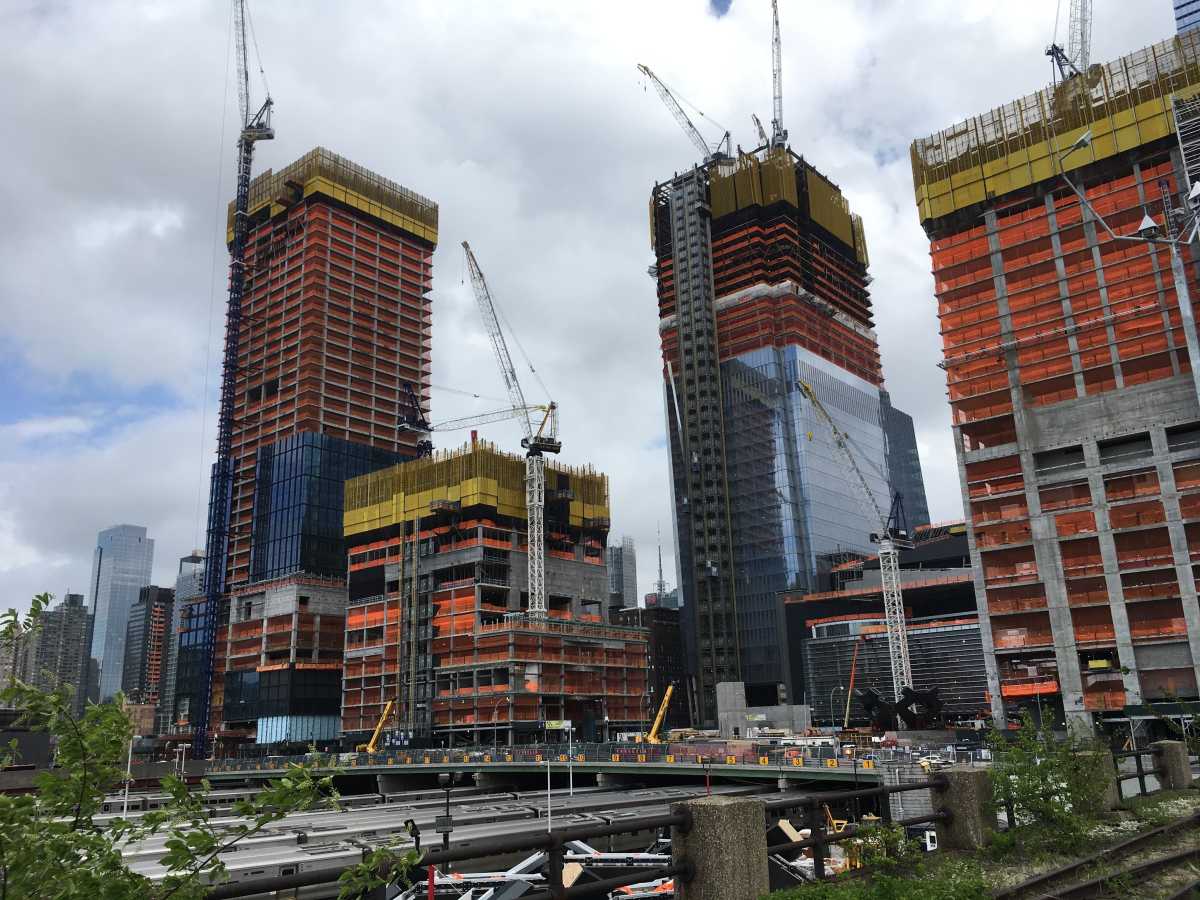A package of bills passed by the City Council seeks to reform the Boards of Standards and Appeals (BSA), an agency that has the power to grant developers “relief” from zoning codes.
As developers increasingly find the borough an appealing place to construct residential and commercial projects, especially western Queens, the legislation seeks to create a greater level of transparency between the community, developers and the BSA’s decision-making process.
A total of nine bills were approved by Mayor Bill de Blasio on May 24, which were introduced by five council members, including Queens’ Councilman Jimmy Van Bramer, Councilwoman Karen Koslowitz and Councilman Donovan Richards.
The five-member board is responsible for either approving or denying applications that developers submit when they want to get around certain zoning laws. Developers must prove that they will not get an economic return on their property if they fully comply with zoning regulations. To grant the variance, the board must determine that five findings are met to prove that developers would face hardships if they are bound to follow specific zoning laws.
But community boards, who provide input to the BSA, have long complained that the process is not completely transparent and that the five-member board does not take their suggestions into account.
This lack of transparency drove Van Bramer, who represents Long Island City, Sunnyside, Woodside and a portion of Astoria, and other council members to draft these bills.
“The five commissioners of the Board of Standards and Appeals wield enormous power and make consequential decisions that affect neighborhood character and affordability,” he said. If the board ever votes against the wants and needs of a neighborhood, I believe that the members of the community who will ultimately live with the consequences of the board’s decision deserve to know why.”
Van Bramer’s bill, Introduction 282-A, would require the BSA to take the opinions of community boards, borough boards, owners, lessees and tenants into consideration when making their opinions.
Community Board 2 (CB 2), which spans Van Bramer’s district, cheered when the councilman announced the bills at a CB 2 meeting on June 1. He added that the BSA must explain its decision in writing if it decides to approve a project that a community board disproves of.
“That is going to put them on notice that they can’t continue to do what they want without any concern for us,” he said.
There has been an explosion of construction in Van Bramer’s district and CB 2 regularly has to make decisions about variances. Just recently, a one-story church in Woodside asked for a variance to knock down their building and construct a five-story megachurch in its place.
After several public discussions, the board ultimately decided to recommend that the BSA deny granting a variance. The BSA has yet to make a decision on that specific project.
The plan received major pushback from the Filipino community in Woodside. Located at 68-03 Roosevelt Ave., the church sits in an area known as Little Manila. Members of the Filipino American Democratic Club (FADCNY) argued that a building of this size would encourage more development and possibly push out small business owners and longtime Woodside residents.
Aries Dela Cruz, FADCNY president, praised the council members for passing the package and argued that the BSA should take into accounts the comments made by elected officials, residents and community board members when they make their final decision.
“The Board of Standards and Appeals’ lack of transparency not only threatens the livelihoods of vulnerable communities like Little Manila in Woodside, Queens, it undermines their ability to voice legitimate concerns over the development and zoning decisions that impact them,” he said. “We commend Governmental Operations Chair and Council member Kallos, Majority Leader Van Bramer, Council members Steven Matteo, Karen Koslowitz and Donovan Richards for being on the front lines fighting to make sure that the BSA is truly responsive to the needs of everyday New Yorkers.”
Councilwoman Karen Koslowitz, who represents Forest Hills, Rego Park, Kew Gardens and Richmond Hill, sponsored Introduction 418-A, which requires the BSA to respond to any recommendation put forth by community boards or borough boards.
“Community and borough boards spend significant time and effort on special permit applications brought before them for review,” she said. “Community and borough boards should not feel that their recommendation on a matter was cavalierly discarded by the BSA.”
Richards, who represents Laurelton, Rosedale, Springfield Gardens and Far Rockaway, authored a bill that would require the BSA and developers to send applications to community boards and elected officials by certified mail and to post on its website that the applications have been received and verified.
“It was shocking to hear that the BSA does not track these instances where developers do not follow through on this required step in the process,” he said.
View a full list of the bills that were passed here.



































